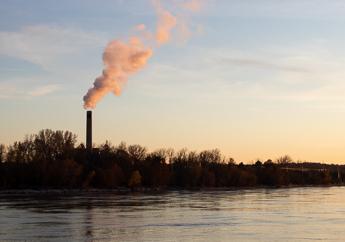
The Missouri Department of Natural Resources is responsible for protecting and improving Missouri's air quality. Companies doing business in Missouri may be subject to regulations developed under the federal Clean Air Act. Missouri's Air Conservation Law is the state equivalent to the federal requirements.
Under this law, the department issues a variety of air permits to businesses and individuals that have the potential to emit air pollution through industrial processes or open burning. The permit describe how the facility is required to meet state and federal air quality regulations to reduce air pollution and protect public health. The permit also documents all sources of air pollution at the facility, what pollutants will be released, how much will be released and what steps the permittee is required to take to reduce pollution.
*If you need information about obtaining professional certifications before participating in asbestos-related projects, please visit the department's Asbestos webpage.



